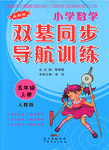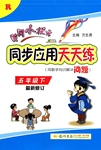题目内容
Edith Cavell was born in a little English village. She was a clever, hard-working girl and did well at school, especially in music and French. After she left school, her first job was to take care of the children of a rich family in Belgium(比利时). The language they spoke was French, so she found that her school studies were useful. She could understand them easily, at the same time she taught the children to speak English and play the piano.
After hearing that her father was seriously ill, Edith returned home to look after him. She then decided to become a nurse. Afterwards for five years she worked in an English hospital where she proved to be highly professional at her job. A Belgian doctor was so impressed(印象深的)that he invited her to his country to organize a training school for nurses. The First World War broke out in 1914 and Edith Cavell’s school of nursing became a hospital. She stayed there to look after the sick and wounded soldiers . Edith treated them with kindness. Between November 1914 and August 1915 she secretly helped about 200 wounded soldiers and prisoners (囚犯) escape from the Germans. Later the German army found out what Edith had done and they arrested her. Finally, the Germans killed her, but they could not kill her memory. A tall statue(雕塑)has been built in Trafalgar Square, London, in honor(纪念)of the brave English nurse.
【小题1】Edith Cavell’s first job was to __________.
| A.teach French | B.look after the children of a rich family |
| C.teach English | D.look after the sick and wounded soldiers |
| A.Because she found work in an English hospital. |
| B.Because she organized a training school for nurses. |
| C.Because the First World War broke out. |
| D.Because her father was seriously ill. |
| A.杀死她 | B.使她失去记忆 | C.抹去对她的记忆 | D.摧残她 |
| A.Edith was good at music and German at school. |
| B.Edith was a highly professional doctor. |
| C.Edith was invited to her country to organize a training school for nurses. |
| D.People have built a tall statue in honor of Edith. |
【小题1】B
【小题2】D
【小题3】C
【小题4】D
解析试题分析:这篇短文主要记述了一位在一战期间伟大的英国护士。
【小题1】根据第一段After she left school, her first job was to take care of the children of a rich family in Belgium(比利时).描述,可知选B。
【小题2】根据第二段After hearing that her father was seriously ill, Edith returned home to look after him.描述,可知选D。
【小题3】联系下文,可知此处指的是他们并不能抹去对她的记忆。故选C。
【小题4】根据最后一段A tall statue(雕塑)has been built in Trafalgar Square, London, in honor(纪念)of the brave English nurse.描述,可知选D。
考点:传记类记述文阅读
点评:本文浅显易懂,各个小题都能在文中找到适当依据。只要认真阅读短文,注意前后联系,就能顺利完成阅读。文章所设试题主要考察细节查找,做题关键是找出原文的根据,认真核查小题和原文的异同。

 开心试卷期末冲刺100分系列答案
开心试卷期末冲刺100分系列答案 双基同步导航训练系列答案
双基同步导航训练系列答案 黄冈小状元同步计算天天练系列答案
黄冈小状元同步计算天天练系列答案
| |||||||||||||||||||||||||||||||||||||||||||||||||||||||||||||||||||||||||
| |||||||||||||||||||||||||||||||||||||||||||||||||||||||||||||||||||||||||
| |||||||||||||||||||||||||||||||||